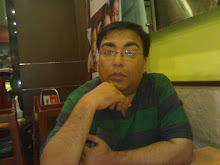
Healthcare Marketers instinctively know that their largest customer segment is the elderly. Healthcare spends increase significantly in the older people and they need a wide range of healthcare services. As life expectancy increases across the globe the burden of disease also seems to be increasing at least in the burgeoning population of the older people.
The real challenge now is to ensure that while we live longer, we also live healthier. Lifestyle choices have an important role in determining the state of our health in the twilight years. However, as we grow older it is only natural for us to fall prey either to the ravages of time or to silently lurking diseases, which remained at bay earlier when our body's ability to withstand their onslaught was higher.
Healthcare Marketers attempt to connect with the elderly in many ways. In India, most hospitals have failed to put together an effective CRM program, which addresses the needs of the elderly in a systematic manner. The reasons for this, in my experience are many.
Hospitals in India look at the elderly as a group of people, who constitute a short term opportunity. They rarely look at investing in a relationship with the individuals in this group. A large amount of effort is concentrated in short term promotions targeted at the elderly. These usually include discounts and basic screening health checks, which are a thinly disguised ruse to get them to the hospital once. Almost all the hospitals pay lip service to the elderly by offering 'senior citizen discounts', which to my mind is the tool of the lazy marketer.
Very few hospitals realise that to successfully build a relationship it takes time, resources and tenacity. More so with the elderly as they usually are a lot more suspicious of strange institutions (particularly banks and hospitals) making unsolicited overtures.
A good relationship program must be designed in a manner that alley the natural fears of the folks, for whom the program is being designed. The program content and communication should be such as to reassure the elderly that the reason for the program is to provide better and customised care.
A good relationship program should evaluate the needs of the elderly carefully and offer tailor made solutions. For a large number of older people access to hospital is a big issue. Can a hospital offer a pick-up to the elderly people who join the program? Many elderly people need regular testing and need to have samples collected from home. Can a hospital do this on a regular basis? Can medicines required on a monthly basis be sent home on a pre appointed day of the month, month on month? Can a hospital dedicate a physician to take care of the minor day to day problems of the elderly, without they going through the routine OPD system? Can the signages be printed in bold and larger fonts to allow the elderly to navigate the hospital without assistance? Can they have separate counters, where they are served on priority? Can their be an executive dedicated to greet the elderly and offer assistance?
All this and more must be a part of the relationship program.
The real challenge lies in the execution of the program, which entails a seamless integration of medical expertise, technology and above all well trained individuals with the right attitude. CRM technology is quite advanced and allows one to slice and dice the data in multiple layers and directions. The greater the ability to slice the data, the more customised will be the program.
Apart from technology the most important element in the success of the program are people, who have genuine empathy, are passionate about their work and genuinely committed. Training goes a long way in ensuring a good customer experience, however a great customer experience gets delivered when the people managing the front end of the program really believe in it.
Nurturing the elderly in the twilight of their lives is a worthy goal in itself. A good relationship program allows the hospital to connect with them in their hour of need and ensure that they are recognised and treated with respect and dignity. The program more importantly should also connect with them, when they do not need medical care.
The patients in turn will always reciprocate.
Pic courtesy www.flickr.com

No comments:
Post a Comment